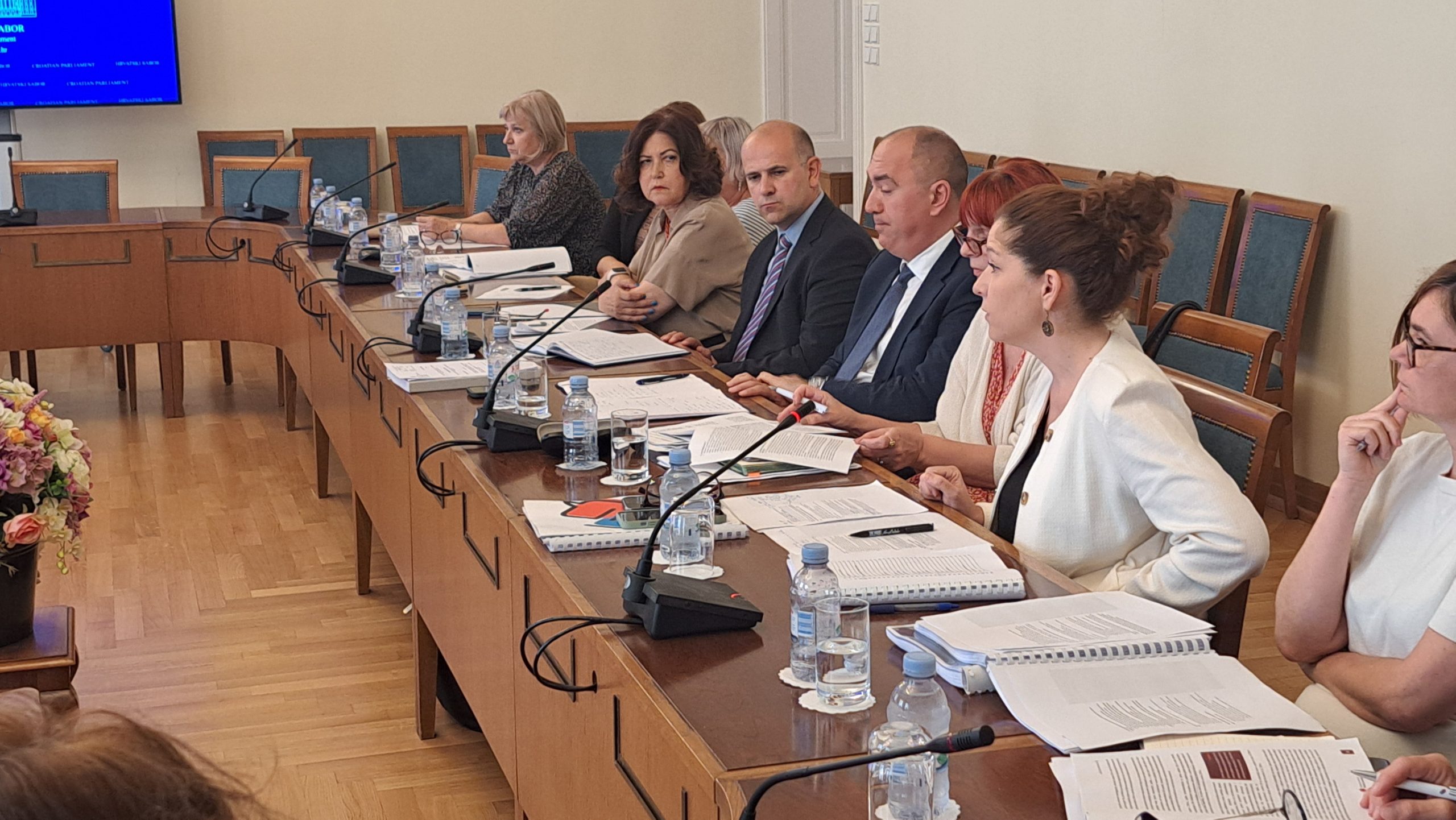The Committee on Health and Social Policy of the Croatian Parliament discussed and unanimously adopted the Ombudswoman’s 2022 Annual Report at its session held on 19 June 2024.
Ombudswoman Tena Šimonović Einwalter emphasized that the report is an analysis and assessment of the state of human rights in Croatia, and in addition to the issues brought forward by citizens, it includes 170 recommendations.
In 2022, citizens most frequently addressed the Ombudswoman concerning the right to health. Each complaint is unique and deserves due attention, she noted, and they can be grouped into several categories: inadequate and untimely treatment, shortcomings in informing patients, insufficient communication between doctors and patients, poor exchange of information among different doctors, unclear procedures for handling complaints within the healthcare system, and lack of access to healthcare, which is linked to waiting lists, a shortage of medical teams, and is particularly pronounced on the islands and in rural areas.
Cancer mortality in Croatia remains among the highest in the EU, while OECD data show that the number of avoidable deaths through timely and effective healthcare is significantly above the EU average. The palliative care system, the Ombudswoman stressed, is underdeveloped and often inaccessible to citizens in extremely difficult situations. This was highlighted in both the 2022 and 2023 Annual Reports and continues to be an ongoing issue.
The right to health is also addressed in other chapters of the Report—those related to youth, the prison system, the protection of persons with mental disorders who are deprived of liberty, and the right to a clean, healthy, and sustainable environment.
As the Committee’s scope also includes social policy, the Ombudswoman presented those sections of the Report as well, focusing particularly on the social welfare system and the impact of poverty on human rights, which remained a prominent issue in 2022.
She devoted special attention in her presentation to the rights of older persons, an important yet too often neglected social group, highlighting Report topics related to older persons, such as social security, care homes, violence against the elderly, prevention of abuses of life annuity and support contracts, the pension system, and discrimination against older persons in various areas of life.
The Ombudswoman also presented to the Members of Parliament a selection of activities undertaken in 2022 to promote and protect human rights. These included work on 4,534 new cases, as well as fieldwork, efforts to improve public policies, the implementation of numerous educational activities, and two research studies, including the largest and only regular survey on discrimination in Croatia.
Members of the Committee also supported the message on the importance of timely parliamentary debate on annual reports and expressed hope that the Ombudswoman’s 2022 Annual Report would be discussed at a plenary session in the coming weeks, with the 2023 Annual Report following shortly after the Government of the Republic of Croatia submits its opinion to Parliament, as required for the debate to proceed.
The Ombudswoman’s 2022 Annual Report is available [here], and the most recent 2023 Annual Report is available [here].





